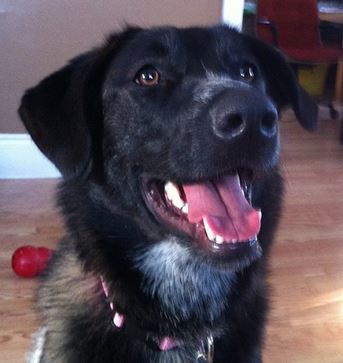Dogs start out with 28 baby (deciduous) teeth and cats have 26 baby (deciduous) teeth. By six months of age, these teeth begin to fall out and are replaced with permanent adult teeth. Dogs have 42 permanent teeth and cats have 30.
When should I start dental care with my pet?
The earlier you start the better. This way you and your pet will become accustomed to the routine right away and you will be more likely to continue through your pet’s adult years. However, it is never too late to start. If your pet has just had a dental cleaning this is an excellent time to start a daily dental routine. if your pet has recently had a dental checkup and there is no sign of gum disease or any other serious dental issues this gives you the chance to start a good dental routine to help prevent any tooth problems in the future.
What do I need to start?
All you need is a toothbrush or a finger brush and some pet formulated toothpaste. Never use a human formulated toothpaste or baking soda as this can cause stomach upset and some ingredients in human oral health products can be toxic to your pet. Pet tooth brushes are made softer than human toothbrushes to prevent damage to the animals gum tissue.
I feed my pet treats that “brush their teeth”. Do they really work?
These products are usually very high in fat and can lead to obesity. They generally are not particularly helpful with dental care because the pet would have to eat far too many of the treats for them to be of any benefit.
Do any of the pet foods advertised to aid in dental care really work?
Yes, some of them are effective though you do have to take care in choosing a high quality food so your pet’s nutritional needs are not sacrificed.
Why would my veterinarian suggest a professional dental cleaning?
If there is a heavy accumulation of plaque and tartar it will damage the teeth and gums. The gums become red, swollen, sore, and inflamed. If left the gums will separate from the teeth, creating pockets where bacteria, plaque and tarter will build up. This finally causes more damage affecting the tooth and leading to bone loss in the jaw. Bacteria from these areas can enter the bloodstream and can lead to serious health problems. The liver, kidneys, heart, and lungs are most commonly affected. Prior to dental cleaning it is highly recommended to have a blood profile done to see if any of the major organs have been affected. Often if the teeth are really bad the veterinarian will recommend starting your pet on antibiotics a few days before the dental cleaning/surgery, this will help prevent the spread of bacteria through the blood stream at the time of the dentistry.
What is involved with a professional dentistry?
• The Doctor begins with placing the animal under general anesthetic.
• Plaque and tartar are removed with special dental tools from the teeth and above the gum line.
• Ultrasonic scaling and hand scaling is done to remove the remaining plaque and tartar from the teeth and above the gum line.
• Teeth that are loose, broken, and /or diseased are extracted.
• Any openings left from extractions are sutured (stitched up).
• Teeth are polished and flushed to remove any debris.
My pet is only 3 years old. Isn’t he/she too young for a dental disease?
No, dental disease doesn’t just affect older pets. About 80% of dogs & cats begin to show signs of dental disease by 3 years of age.
I have tried to brush my pet’s teeth but they will not let me!
Some pets just won’t let you brush their teeth no matter how much you try. If you are having difficulty there are many oral products available. We suggest that you speak with your veterinarian about what would be best for you and your pet.

